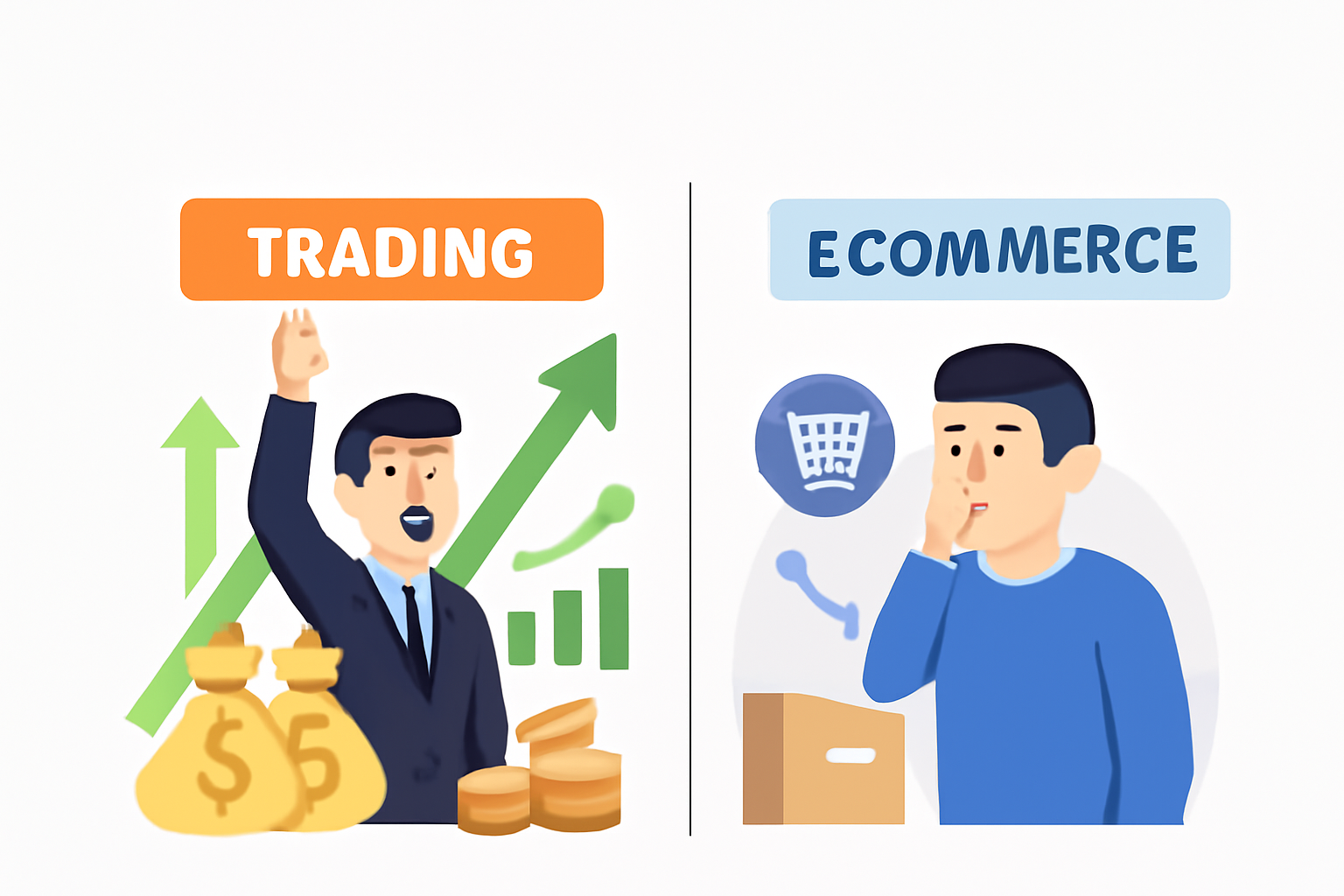Trading vs. E-Commerce
Choosing between trading and e-commerce can be confusing for beginners looking to start an online business or income stream. Both offer unique opportunities to make money, but they operate very differently. This article breaks down the key differences between trading and e-commerce to help you decide which suits your goals better.
What Is Trading?
Trading involves buying and selling financial assets such as stocks, currencies, commodities, or cryptocurrencies. The goal is to profit from price fluctuations by buying low and selling high, or sometimes selling high and buying low. Trading often requires a deep understanding of market trends, technical analysis, and risk management.
What Is E-Commerce?
E-commerce is the business of selling physical or digital products online. It involves setting up an online store, managing inventory, marketing products, processing payments, and delivering goods to customers. E-commerce focuses on product sales and customer satisfaction.
Core Differences Between Trading and E-Commerce
1. Nature of Products
Trading deals with intangible assets like shares or currencies. E-commerce sells tangible goods or downloadable digital products.
2. Risk Levels
Trading carries high financial risk due to volatile markets. E-commerce risks relate to inventory management, marketing costs, and customer service.
3. Skill Sets Needed
Trading requires financial literacy, analytical skills, and emotional control. E-commerce needs marketing savvy, logistics management, and customer communication skills.
4. Time Commitment
Traders often monitor markets daily or even hourly. E-commerce requires consistent effort in store management and customer support but can be automated over time.
5. Revenue Model
Trading profits come from market price changes and leverage. E-commerce generates revenue through product sales and repeat customers.
Advantages of Trading
- Potential for quick profits.
- Access to global financial markets.
- Flexibility in trading hours.
- No physical inventory needed.
Advantages of E-Commerce
- Build a brand and loyal customer base.
- Multiple product options and niches.
- Scalable business model.
- Opportunity for passive income with automation.
Which One Should You Choose?
If you enjoy fast-paced decision-making and financial markets, trading could be rewarding. It demands focus and quick thinking but can offer high returns. If you prefer creating and managing products while building customer relationships, e-commerce may be a better fit.
Conclusion
Trading and e-commerce both offer exciting ways to earn money online, but they require different approaches and skills. Understanding their differences helps you align your choice with your strengths and interests. Take your time to research and even try both on a small scale before committing.
Whatever path you pick, success depends on learning, discipline, and adapting to challenges. So, are you ready to dive into trading or start your e-commerce journey? The decision is yours!



